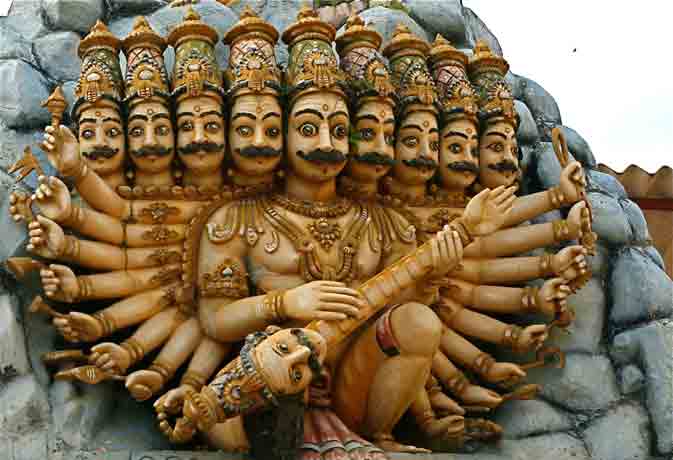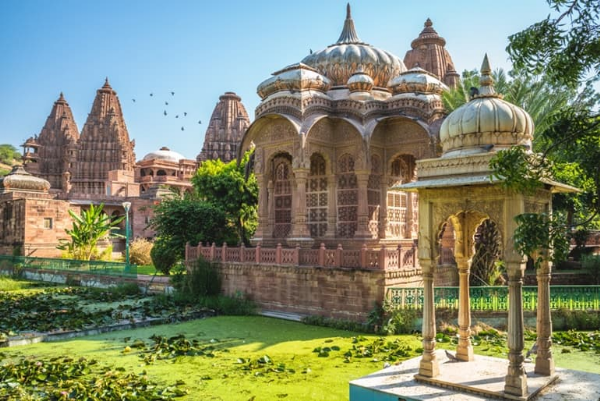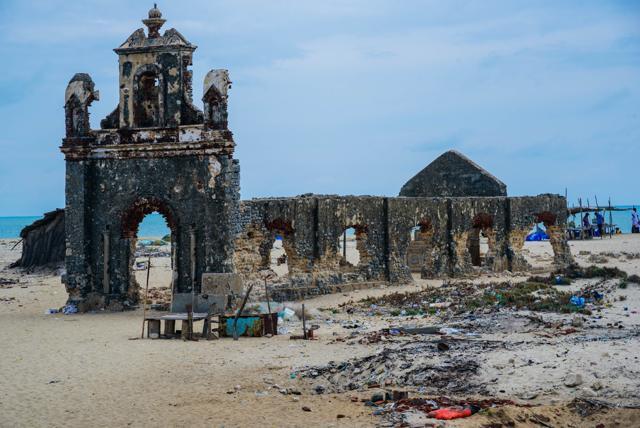India, a land of diverse beliefs and customs, never ceases to surprise with its intriguing cultural tapestry. In the midst of nationwide celebrations where effigies of Ravana, the legendary king of Lanka, are set ablaze, a community in Jodhpur, Rajasthan, mourns his death. This community, known as the Shrimali Brahmin community, proudly considers themselves descendants of Ravana, with strong ties to the town of Mandore. Let's delve into the captivating story of this community and their unwavering reverence for the infamous ruler.
According to folklore, when Ravana journeyed to Mandore in Jodhpur to marry Mandodari, a group of Brahmins accompanied him in the grand procession. While Ravana returned to Lanka after the wedding, these Brahmins chose to remain in Jodhpur. Since then, the Shrimali Brahmins of the Godha gotra have been engaging in special worship dedicated to Ravana. Rather than witnessing the customary burning of effigies, they mourn his death on the day of Dussehra, known as Ravan's Shradh. Additionally, during the Shraddha Paksha, rituals like Tarpan are performed to honor him.
The presence of Ravana's devotees in the Jodhpur district is shrouded in theories lacking concrete evidence. However, it is widely believed that Mandodari, Ravana's wife, is revered as one of the five Mahasaties in Hindu mythology. Mandore boasts a prominent landmark named "Chavri," a tall umbrella-like structure believed to be the sacred site of Ravana and Mandodari's wedding. It is this historical connection that draws many followers and descendants of Ravana to perceive Mandore as a safe haven for migration.
In 2008, the Brahmins of the Godha gotra constructed a temple dedicated to Ravana in the foothills of Mehrangarh, Jodhpur. Within this temple, a colossal statue of Ravana stands alongside idols of other deities, including Lord Shiva. This sacred space serves as a focal point for their worship.
Descendants and disciples of Ravana observe a 12-day mourning period known as sutak following Dussehra. During this time, separate rituals like shradh and Pinda Daan are performed to pay homage to the departed king. As a symbolic gesture of mourning, the descendants of Ravana change their clothes after bathing, just as the Yagyopaveet (sacred thread) is changed during traditional rituals. Notably, the Shrimali Brahmins of the Godha gotra, being descendants of Ravana, abstain from witnessing Ravana's effigy burning. Over 100 families of this gotra reside in Jodhpur, with an additional 60 families in Phalodi.
In addition to the mourning rituals after Dussehra, Ravana's shradh is performed annually on the 10th day of the 16 lunar days of "Pitra Paksh," which falls a month before Diwali. These observances uphold the traditions and customs passed down through generations within the Shrimali Brahmin community.
Remarkably, this sect of Brahmins chooses not to openly express their beliefs and religious sentiments in public. They refrain from comparing Ravana with other Hindu gods and goddesses to avoid causing offence or hurting religious sentiments.
They consider Ravana their revered deity.



No comments:
Post a Comment